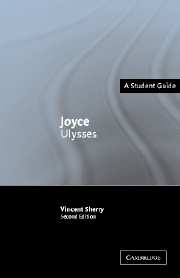P(ost) S(criptum) U(lysses)
Published online by Cambridge University Press: 05 June 2012
Summary
In a diary entry of 1941, Virginia Woolf reports an earlier conversation with T. S. Eliot, who has invoked the difficulty – indeed the impossibility – of writing in the wake of Ulysses. For Eliot the final episode of the book represents a tour-de-force that renders silence the only possible imaginative response. While these remarks may betray the anxiety of Joyce's influence on The Waste Land, which followed the model of Ulysses in shifting several characters-in-voice around a central underlying myth, the predicament the poet expresses must be sensed with far greater gravity and acuteness by a novelist. Earlier in 1923, Eliot can look back at the history of the genre and, from the perspective afforded him by Joyce's inventions, announce that the novel had already ended with Flaubert and James. Mimetic reliability, verbal transparency, serial plot, linear development of themes usually congruent with the middle-class mores of its reading public, psychological insight into characters who change in ways that do not threaten their credibility, and the moral authority of a superior narrator: these are the features of the novel at its climacteric, in the classic age of realism in the second half of the nineteenth century, but they cannot survive the colossal novelty of Ulysses. How to extend work in a genre that no longer exists – at least as a productive basis for imitation and variation – is the challenge Ulysses poses to those writing after it.
- Type
- Chapter
- Information
- Joyce: 'Ulysses' , pp. 102 - 112Publisher: Cambridge University PressPrint publication year: 2004



